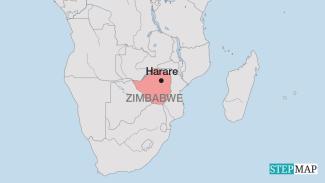Technology
Using WhatsApp to access health care in Zimbabwe

Dubbed Cloomi, the WhatsApp chatbot has become very popular in Zimbabwe, a country where the health sector has been deteriorating for years. It is common practice that public and private hospitals lack the required drugs and prescription. As such, citizens must find a pharmacy to buy pharmaceuticals.
On Cloomi, Zimbabweans at home and in the diaspora can check the availability and compare prices of services and products offered by pharmacies and medical laboratories in their chosen location. “Talking to the bot like they are chatting to one of their friends, a user selects the category of providers they want, enters a city or area and the product or service he or she is looking for,” says the co-founder of Cloomi, Blessing Museki, a Zimbabwean software engineer based in the United Kingdom.
Cloomi was founded in 2022 after discovering how difficult it was to find the price and availability of essential medicine in Zimbabwe. It prioritises the privacy of users by allowing anonymous identities. “When attaching a prescription, we ask the user to obscure any personal details, which is pretty easy to do with WhatsApp,” says Museki.
According to Museki the application adopts other easy use features. “You can specify what you are looking for in plain text form, like “paracetamol”, or attach a picture that is a prescription or product bottle or packaging.” He says this request is then instantly sent to all the subscribed service providers that match the user search.
Using the same bot service providers can download and process customer requests. Normally, users receive an availability confirmation or price quote within at least ten minutes. The pharmacy can confirm if they have the product by providing information like price or asking the user for a prescription. The user can also see the business’s physical address and location on a map.
Armstrong Manenji, a marketing and research officer at Greenwood Wholesalers and Pharmacies, says that the technology has been embraced mainly by people abroad. “It is easy to use. People living abroad find it convenient because they can look for, order and pay for medicine for their relatives and ask them to collect at the pharmacy,” he says. Pharmacies with online payment options are preferred by diaspora users.
Cloomi however has a limit. A service provider can only respond to requests within 24 hours. “You might be busy and need more time to respond,” says Manenji. Service providers who fail to respond within that time end up losing potential clients.
Cloomi uses the WhatsApp platform, popular in Zimbabwe, as opposed to web browsers affected by slow connection and expensive internet data fees. To date, more than 200 pharmacies and 10 medical laboratories across the country have come on board. “Later on, we are going to include doctor booking via the chatbot,” Museki says.
Farai Shawn Matiashe is a journalist in Mutare, Zimbabwe.
matiashefarai@gmail.com











